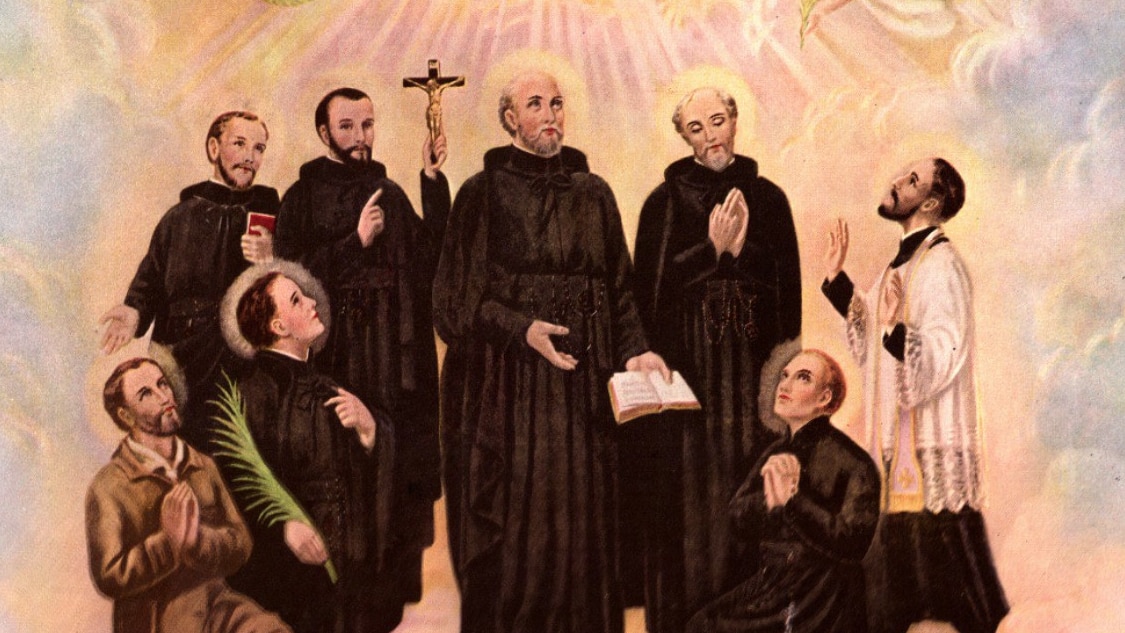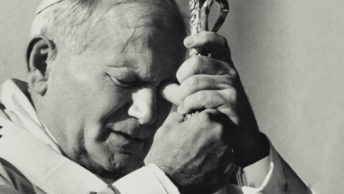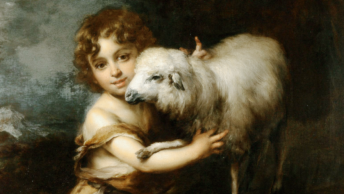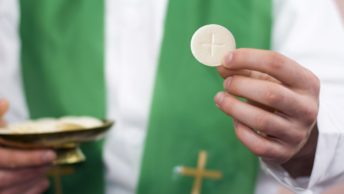The most common, polite form of showing interest is expressed by the phrase: “How are you doing”? To which the most common answer, regardless of the real condition in which people find themselves is: “Fine.”
Well, the readings for the 17th Sunday in Ordinary Time intend to go way beyond that superficial exchange; they reach all the way into that remote part of the heart that is often choppy or, at least, slightly unsettled. These readings are chosen by Mother Church to settle our hearts and enable us to function is such a way as to give glory to God and make us joy-filled people in all circumstances of life.
I think that the best way to go about our encounter with God and this particular Word of His is by “translating” into contemporary American English the images and the references that were so familiar to the author of John’s Gospel and to His Church, nearly 2000 years ago. The first thing we should anchor down is the fact that, due to the nature of the human heart, whatever John was inspired by the Holy Spirit to write to the members of His Church, at the turn of the first century AD, is still totally relevant and most valuable today. And, the bottom line is still the same: every believer is called to be and to live as a “Eucharistic person” within a “Eucharistic Church.”
We can start by noticing that the crowd is always large: it was large near Philip’s hometown of Bethsaida, across the Sea of Galilee. It was large in John’s church. It is large nowadays because God loves a challenge worthy of His reputation as a most generous, magnanimous God who desires all peoples, all nations to partake of his endless messianic Banquet.
It is very interesting to see how God relishes what is humanly impossible; He intentionally proposes that which scares us precisely because it is beyond our reach, our resources and know-how.
Elisha’s servant would object: “How can I set this before a hundred people?”
Philip would wonder: “Two hundred days’ wages worth of food would not be enough for each of them to have a little.”
And another disciple would add with apprehension: “but what good are these (5 barley loaves and 2 fish) for so many?”
The time is, invariably, around the Jewish feast of Passover. Translated in our vernacular, it means: we should live through every Eucharistic celebration as a Passover: Jesus, the Paschal Lamb, offers Himself on the altar of the cross for our salvation. One with Him, we pass from death to life, from the slavery of sin to the freedom of God’s children. We should not overlook the fact that there is also always a great deal of grass: translated into words that we can understand that means that our God continues to turn the worst, most inhospitable “deserts” that we create for ourselves and for others, into lush meadows for the pasture of His sheep.
However, our God refuses to solve our problems through “spiritual magic.” As soon as we acknowledge our powerlessness, He uses what we are hesitantly willing to give up—quite a risk in our eyes indeed—to do His part, the part that he alone can bring to fruition. Yes, we feel that we risk a lot by giving up our “5 loaves, the 2 fish.” They represent our risk management over something unusually large and our contingency plan; but He is ready to do his part, the one humanly impossible, only after we give them up.
The bread of that primordial Eucharistic setting was from barley, the main staple of the poorer among the poor. This should be another eye opener, because only the truly poor look up to God for their fill. Only the truly poor can be enriched by God’s grace for the reason that their trust is exclusively in Him. And, only the truly poor remain numerous enough to fill the largest banquet hall ever, the one of the Wedding Feast of the Lamb.
And there are always leftovers: 12 baskets completely full! Consistently, at the end, Eucharistic people nourished by their Eucharistic Lord have always more than enough for themselves and, without fail, there is plenty more for those who make up the ever-expanding family of God. There are several other details with which we should become familiar; but these are enough to lead us to a fuller appreciation of the heart of our God. Hopefully, today, our choppy, restless hearts will dare to toss away any form of security that attempts to replace the security that can come solely from the hands of the Lord.
Hopefully, today, our hearts can finally find some rest after been fed abundantly by the Flesh and the Blood of their God. Hopefully, today and always, we firmly believe that the contribution, demanded of us by God as a prerequisite, can become Eucharist only after what was “mine” becomes “ours,” on its way to become divine by a common, generous, courageous accord.








